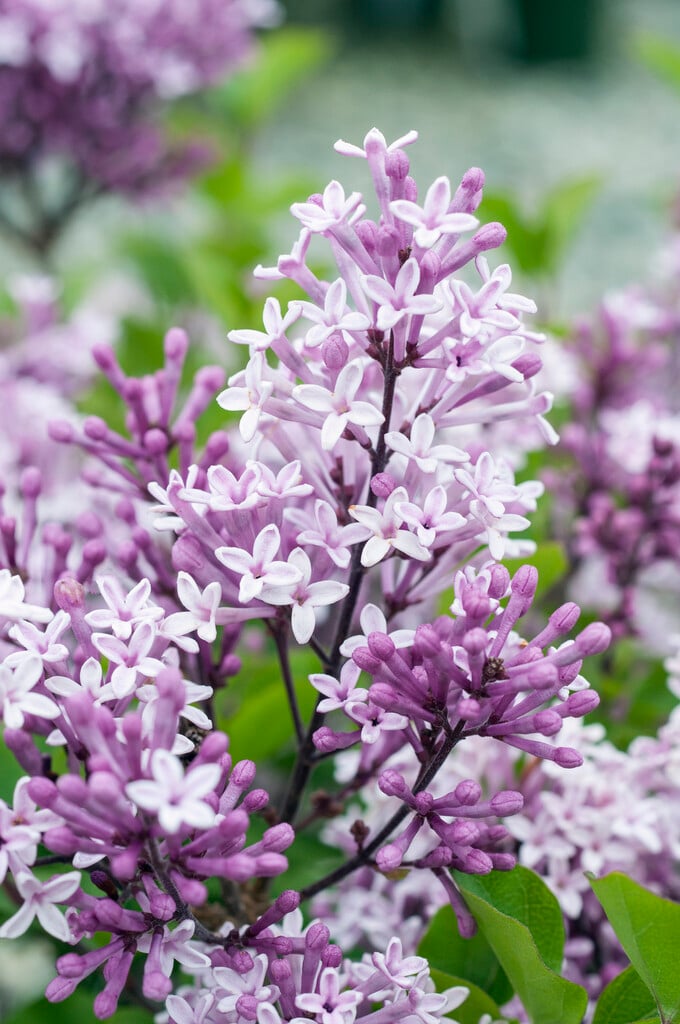Syringa meyeri 'Palibin'
lilac 'Palibin'
A bushy, slow-growing deciduous shrub with small, broadly-ovate, dark green leaves and upright panicles of small, fragrant, lilac-pink flowers
Synonyms
Syringa meyeri var. spontanea 'Palibin'Syringa patula misapplied
see moreSyringa palibiniana misapplied
Syringa velutina misapplied
Size
Ultimate height
1–1.5 metresTime to ultimate height
10–20 yearsUltimate spread
1–1.5 metresGrowing conditions
Moisture
Moist but well–drained, Well–drainedpH
Alkaline, NeutralColour & scent
| Stem | Flower | Foliage | Fruit | |
| Spring | Pink Purple | Green | ||
|---|---|---|---|---|
| Summer | Pink Purple | Green | ||
| Autumn | Green | |||
| Winter |
Position
- Full sun
Aspect
North–facing or East–facing or South–facing or West–facing
Exposure
Exposed or Sheltered Hardiness
H5Botanical details
- Family
- Oleaceae
- Native to GB / Ireland
- No
- Foliage
- Deciduous
- Habit
- Bushy
- Genus
Syringa can be deciduous shrubs or trees, with simple, entire or rarely pinnate leaves and conical panicles of small, very fragrant, 4-lobed tubular flowers in late spring or early summer
- Name status
Accepted
How to grow
Cultivation
Easy to grow in most well-drained, fertile, humus-rich alkaline to neutral soils. Thrives in chalky ground and appreciates mulching when planted in full sun
Propagation
Propagate by greenwood cuttings, layering in early summer, grafting in winter or chip budding in summer
Suggested planting locations and garden types
- Low Maintenance
Pruning
Pests
May be susceptible to lilac leaf-mining moth, willow scale and thrips
Diseases
May be susceptible to lilac blight, honey fungus, phytophthora, powdery mildews and bacterial canker (Pseudomonas Syringae)
Get involved
The RHS is the UK’s gardening charity, helping people and plants to grow - nurturing a healthier, happier world, one person and one plant at a time.
